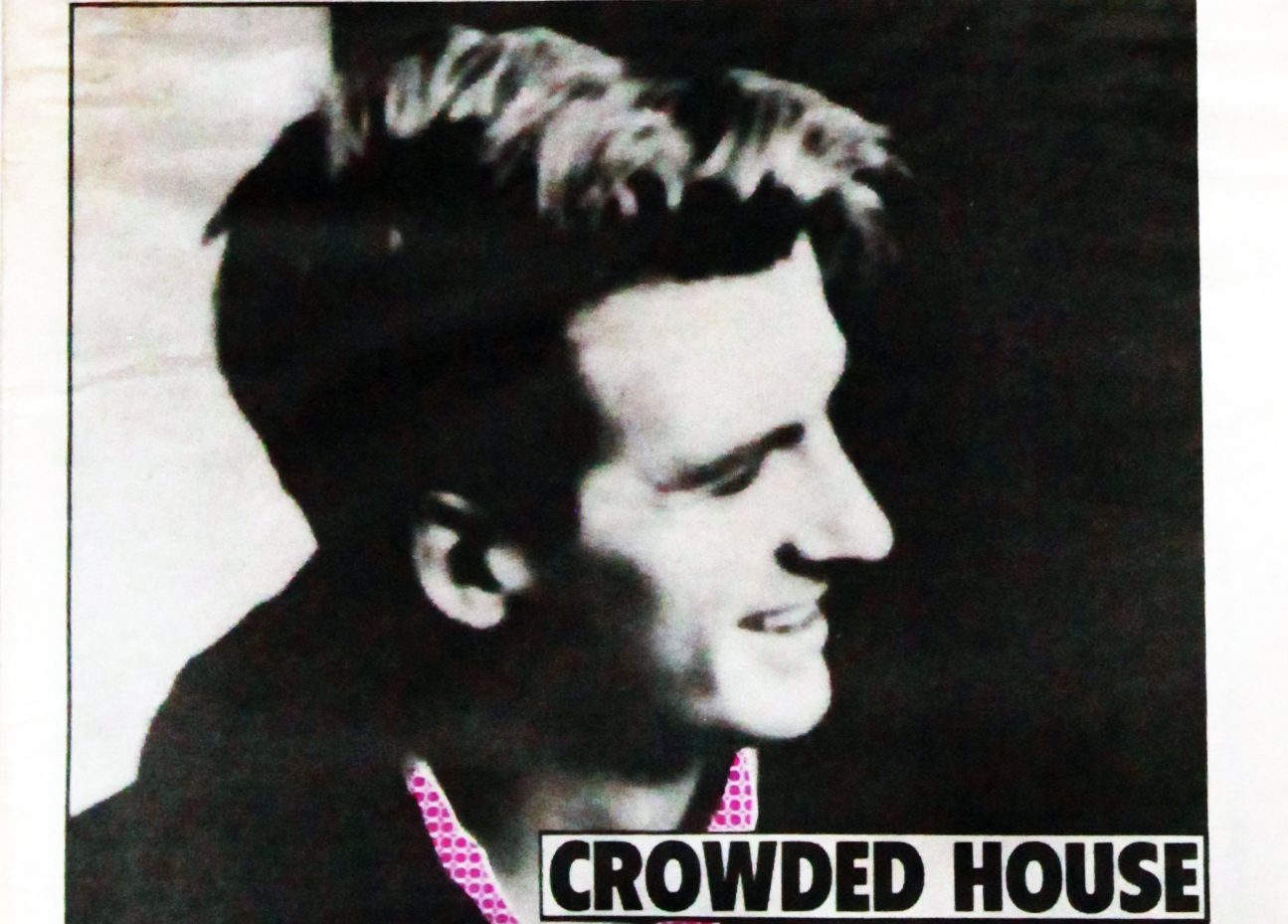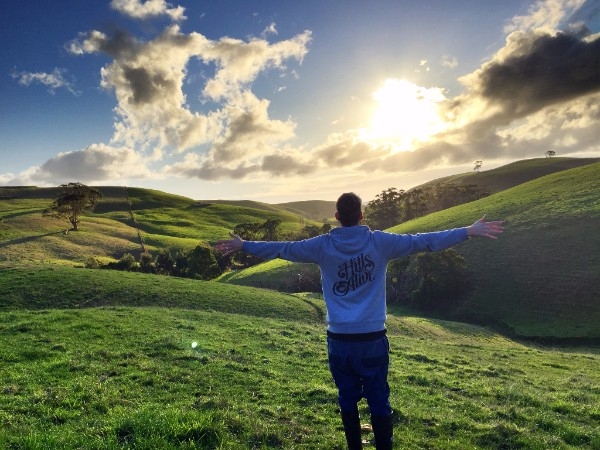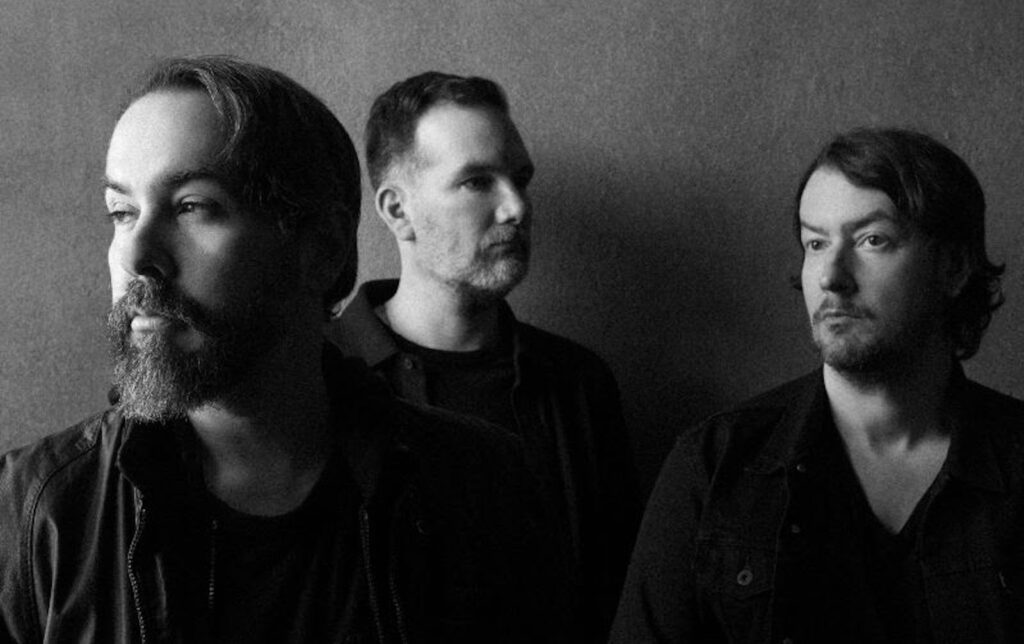Our writer Andrew Watt chats to Crowded House about the band’s debut album. It also coincided with Beat’s debut print edition.
In this interview, Neil Finn exposes his theories on songwriting, the importance of pop music, the Australian rock idiom, and the prospects of bigger and better things. A thoroughly entertained Andrew Watt holds the tape recorder and inserts the bits in between.
“When I decided I didn’t want to persevere with Split Enz it was an accompanying thought that I would get another band together,” says Finn. “It wasn’t so much that l was dissatisfied with playing with the people in Split Enz, but I just thought that if things were going to change dramatically, which they would with Tim leaving, then I want a situation with no boundaries or parameters.
“If we continued with Split Enz we would have had the weight of the past on us. Redefining the whole thing yet again would have been very difficult. I wanted the flexibility of a totally clean break.”
Catch up on the latest music interviews, news and reviews here.
Neil Finn explains the creation of his own new band Crowded House with ex-Split Enz drummer Paul Hester and bassist Nick Seymour. Having done a quick tour of Australia’s east coast last year under the disposable moniker of The Mullanes to road-test Finn’s concept of a stripped back, guitar, bass and drums lineup, the boys high-tailed it to Hollywood, California, in search of fame, riches and ideally a record deal.
A liaison with Capital Records brought the latter of these objectives to fruition and judging by the resulting album, the self-titled Crowded House, the former two objectives may not be too far away. Let’s hope not.
The album was produced by American Mitchell Froom, whose knob-twiddling (and, one suspects, emotional input) contributed to The Del Fuegos album, Boston, Mass, one of 1985’s most engaging and, l’d argue, best releases.
Froom will never be in danger of being criticised for overproduction; his values are steeped in a love of traditional arrangements, uncluttered instrumentation and a sense of warmth and intimacy. Neil Finn is happy to enthuse at length about the success of the relationship with Froom.
“He’s very much into the idea of making a record that’s got a performance aspect to it. We tried to make sure the album was the result of musicians responding to songs rather than an exercise in sound and production,” Finn says.
“Everything had to have an organic nature to it for Mitchell to like it. It was exactly what we wanted to do anyway.
“I wanted to make it sound like a band playing, which sounds like a simple thing but it’s quite hard to achieve on record. It was a conscious attempt to keep things simple and, being the first album, we wanted to make a really honest start. I was revelling in the fact that it was a new band and rough around the edges in some ways.
“We could have so easily ended up with a producer who made it a big production job and imposed his own aesthetic on the whole thing, leaving us with no feeling of band identity. As it is, we’ve got the germ of a sound together that we can pursue. I’m really happy about that.”
High praise indeed, but quite justified. This is one gem of a record; immediately accessible, and balancing a boisterous musical spirit with a quite adequate sprinkling of Neil Finn’s reflecting and mildy melancholy lyrics.
The album opens with the raucous first single ‘Mean to Me’, as inventive a piece of traditionally rooted pop as has appeared this year.
“I guess I’m attracted to a melancholy song,” says Finn. “To me, life is constantly tinged with sadness and so are great songs, although there is the odd occasion when songs can be totally uplifting and raucous.
“It would be naive for me to write a song that says everything is going to be great. I never feel like that consistently. If I have a couple of days when I feel great, I have the next day when I have this oddly uneasy feeling of impending doom.
“The best songs, for me, are the ones that make you feel sad but also make you feel that you’re sharing it with someone.
“I don’t feel like preaching about anything at this stage because I don’t feel that confident about my own impressions of life as it is. I don’t feel clear enough in my own mind to attack specific targets or write protest songs. All I can really do is press the confusion that I’m usually in, so that other people can relate to it too.”
Keen on another nostalgic read? Check out our chat with Boomgates from 2012.







